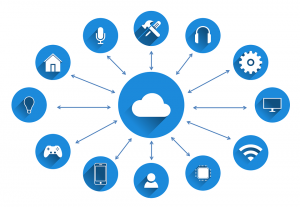 Going beyond the houses of yesteryear, smart homes deliver an experience that’s comfortable, offers improved safety, and reduces both power and energy. Getting to this point often involves intercommunication between household appliances and systems, including lighting, HVAC, the TV, computers, entertainment devices, and the security system.
Going beyond the houses of yesteryear, smart homes deliver an experience that’s comfortable, offers improved safety, and reduces both power and energy. Getting to this point often involves intercommunication between household appliances and systems, including lighting, HVAC, the TV, computers, entertainment devices, and the security system.
Generally, while certain appliances and systems may be designed to be more energy-efficient and use less power, much of the automation and customization involved in a smart home comes from a control panel, which can be installed in-house or through a GSM/CDMA, internet, or PSTN network.
Within this arrangement, liquid level sensors play a crucial role. One, they adjust the device’s or system’s output based upon its humidity, liquid level, temperature, and air quality to either make the home more comfortable or to conserve energy. However, everything won’t always run smoothly, and in this regard, the sensor, through the network, can signal a leak has been detected and will send a notification to your phone.
With these points in mind, a sensor of some type may be used for:
- Lighting: Here, a sensor is part of the home’s lighting control system with the goal of reducing energy and saving you money. A sensor may determine when someone is in the home, and thus turn on the lights or, through pre-programmed settings, can help illuminate the property periodically for “occupancy simulation” when you’re not home. Additionally, sensors also play a role when you adjust the lighting’s intensity in your home or from the outside.
- Curtains, Blinds, and Awnings: How much natural light do you want coming into your home? Depending upon the season and conditions you prefer, a sensor can detect a certain amount of light to adjust curtains, blinds, or an awning.
- Alarm System: In this instance, a sensor assists with intrusion detection and serves as part of the pathway to both sounding an alarm and alerting you that someone has entered your home.
- Fire and Smoke Detectors: A sensor, here, looks at the percentage of smoke in your home and the rate at which heat rises to determine if a fire has started. From here, it sends a signal to activate an alarm.
- Water and Gas Leak Detection: Within your plumbing, heating, and cooling systems, sensors play a key role in keeping all processes running efficiently. For one, they assist with monitoring levels of a liquid or fuel, letting you know if heating oil, for instance, needs to be replaced. But, perhaps more crucially, they’re essential to leak detection. For water, a sensor operates as part of a flood detector, which shuts off your home’s primary water supply when its levels get too high. Similarly, if your home has a gas leak, a sensor sends an electronic signal to shut off the valve.





